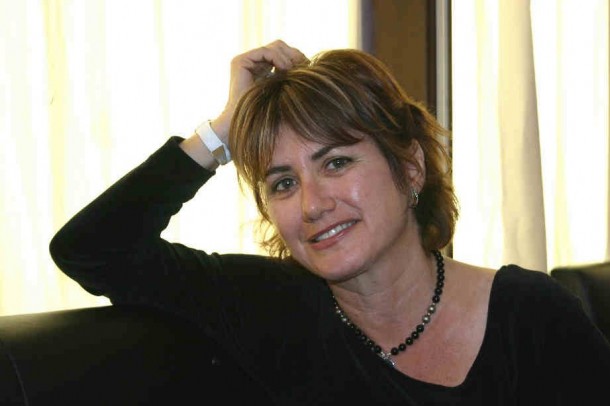I came up with the idea for the film from an inconsequential article I read in the newspaper about eight Muslim widows who had started a pickling plant in the Galilee. I got into my car and drove up north to the town of Tamra. From the moment I entered the small pickling plant, I fell in love with the women. Eight women between the ages of 40 and 50 — all devout Muslims, all widows, who had never heard of the word “feminism” — were creating a small revolution.
These women, according to their customs, mostly don’t remarry. They all have children and usually a second husband will not be willing to take them on. So they have remained with their children and live on social security. Having a relationship with a man out of wedlock is impossible. So the solution they came up with in order to solve their economic plight was to organize a group with a common goal: if there won’t be men in their lives, at least let there be money!
None of them had any formal education so they established a pickling plant — a product they knew how to make, having learned from their mothers. My goal was to create an open and trusting relationship between us, despite the language barrier and our cultural differences. We — the producer and director — are educated, Jewish, westernized big-city women living in Tel Aviv and they are devout Muslims who would never dare to discuss private issues with the outside world. At that moment, Nitza Gonen (the producer) and I made a strategic decision to create a production crew of women only and that made everything much simpler.
The project was exciting for all of us. Slowly but surely we were able to create a trusting, warm relationship with the women and they in turn opened up their hearts and homes to us. For them to meet and to like our sound engineer — a 28-year-old single Jewish woman living with a boyfriend out of wedlock — was incomprehensible. And for us, meeting and befriending women who were already married by the time they were 16 was also new. Most of these women, although they live in Israel, had never exchanged so much as a sentence with Jewish women before.
Our decision was that the narrative of the film would be the pickling plant, and that through the story of the plant we would tell the story of the three protagonists chosen after the first meeting: Fatma, Samira, and Almaza. It was difficult to predict the future of the plant and at one point it looked as if it would be a success — there were negotiations going on with a potential investor and a marketing company was taking an interest in the plant. We aspired to document eight potential near-to-be millionaires, but, unfortunately, this is a documentary and not a drama and in the end things didn’t turn out the way we had hoped.
In the village of Tamra we were treated wonderfully and became well known to everybody. They even allowed us to film things that are not generally acceptable — for example, inside the mosque with the Muezzin during prayer time. There were people who had fears about the documentary, and tried to convince the women not to let us into their homes, but because we had created a bond of trust with the women, they allowed us into their homes despite opposition. The most moving expression of trust in us was definitely when Almaza agreed to let us film the period of mourning for her 30-year-old son in her home.
Not one political word was uttered throughout the filming but we did exchange many recipes and jokes.
People ask me why the plant didn’t succeed. Probably lack of experienced management, a saturated market for the product, and the women’s inability to postpone earning a salary for a longer period of time while they looked for a partner contributed to the outcome. But we still saw changes in the women over the two years of filming — eight widows became a self-help group for each other and relationships ensued. In Fatma, the change was more prominent. From a woman who had never worked outside her home she began to love working in marketing and used the experience she gained to form a small pickling business, which she now runs from home.

